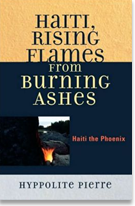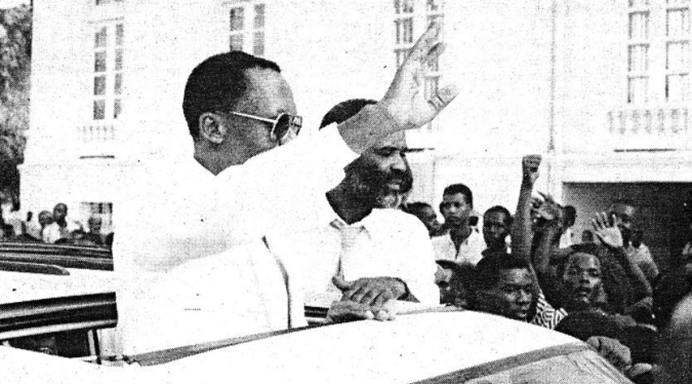 "Haiti’s Priest President" by Hyppolite Pierre
"Haiti’s Priest President" by Hyppolite Pierre
Pierre is a Political Science Adjunct Faculty at American Public University. He is the author of Haiti, Rising Flames from Burning Ashes: Haiti the Phoenix (2006).
Jean-Bertrand Aristide, who became the political figure of the post-Duvalier era for the next 15 years, was an adherent of the Theology of Liberation that gained prominence in Latin America in the 1960s and ‘70s. He was never a Marxist as his enemies pretend, but was rather a radical priest who once said at a public rally that "capitalism was a mortal sin." If anything characterized Jean-Bertrand Aristide, it was his effective use of the Haitian language to transmit a message of hope and pride to the masses. Although Baby Doc Duvalier was one of the first, if not the first, to give entire speeches in the Haitian language, Kreyòl, Aristide elevated this communicative tool to an unprecedented level, using poetic and cultural imagery to elevate political consciousness. He was admired for this and even adulated by people not only from the lower classes, but segments of the middle class and even progressive elements in the elite. He proved once again the importance of culture in politics. Indeed, as language is a very potent form of cultural expression, Aristide used it as if to say that he was embracing the popular cultural in all its forms, with its strength and defects. This was perhaps an important lesson to all. As he gained popularity and recognition, Aristide became the envy of other politicians and the enemy to many, including the successive military régimes that were then in place between 1986 and 1990. He survived assassination attempts, became the darling of the left, and thus began his political career.
The unrepentant partisans of Aristide may try to find solace in believing that Aristide himself was a nonviolent priest. The conclusion however is not that simple. Even as a priest at the St-Jean Bosco Church in Port-au-Prince and at other venues, Aristide used oftentimes violent expressions to communicate the need for political reforms. It created an atmosphere of fear among those who felt targeted. Worse, when he became president of Haiti and shortly before the first coup against him that claimed thousands of lives, Aristide made a political speech as he returned from a United Nations annual meeting of Heads of State in New York, in which he referred to the dreaded form of death administered to former hardcore Duvalier loyalists as a warning to the coup fomenters of what could happen to them should he be removed. The video of that speech showing a spiteful Aristide was thereafter widely distributed by his detractors and coup supporters as justification for removing him from power.
